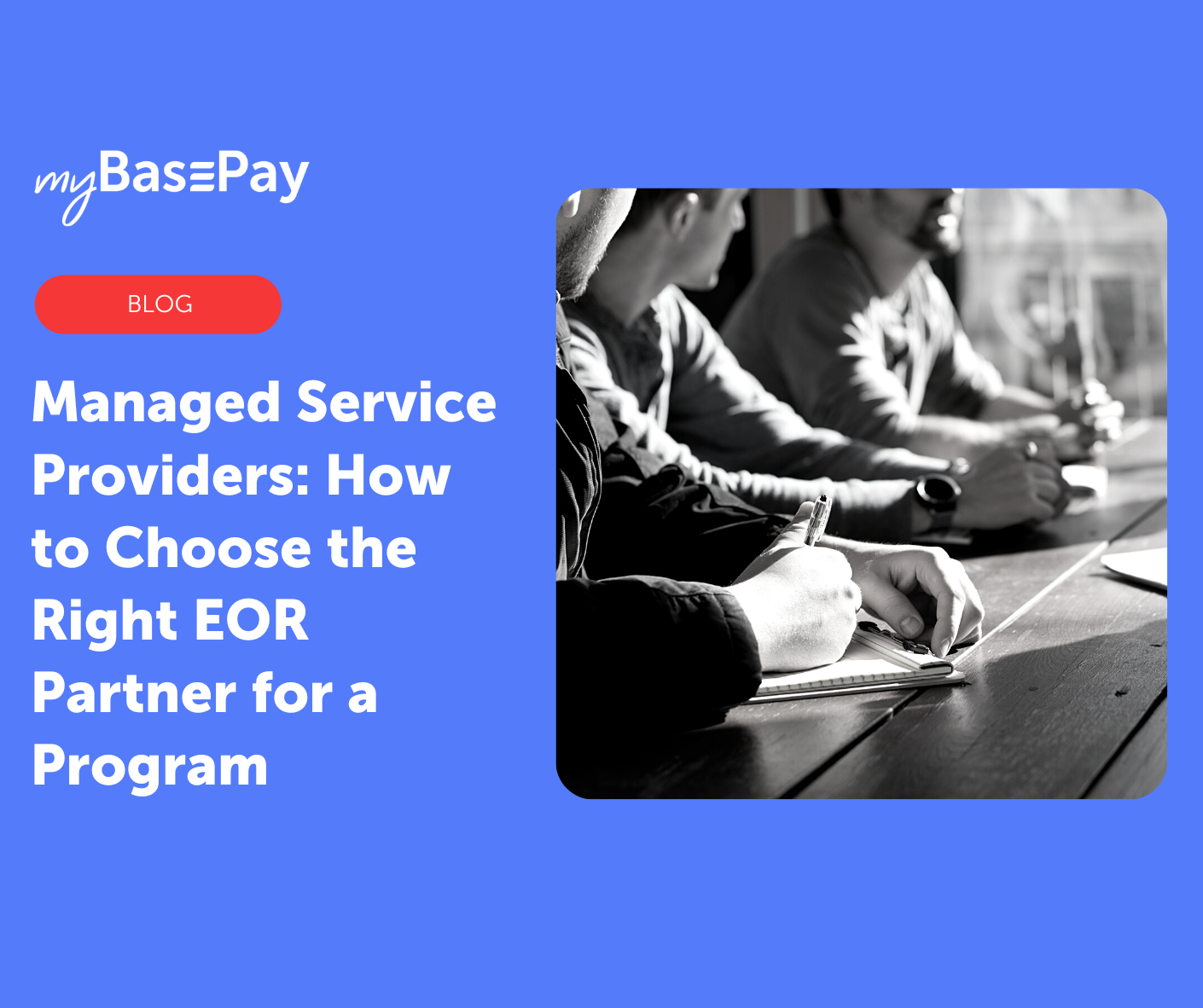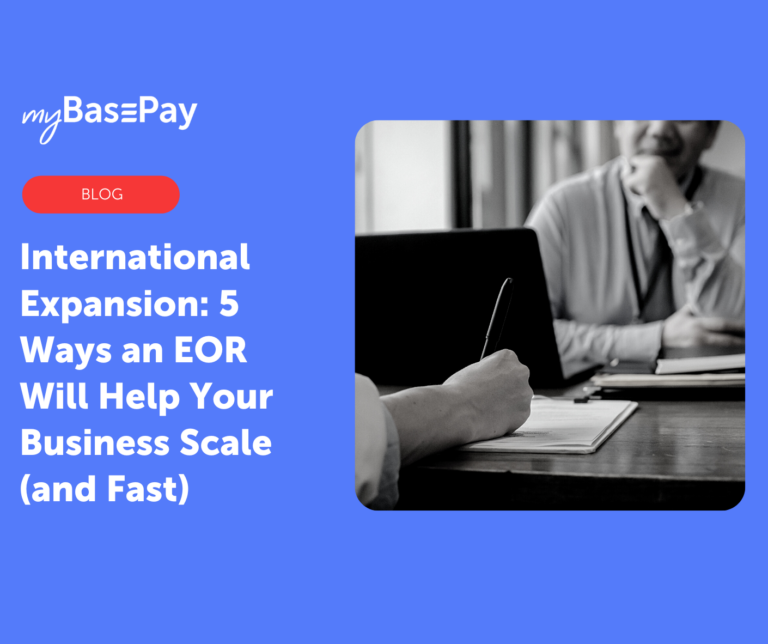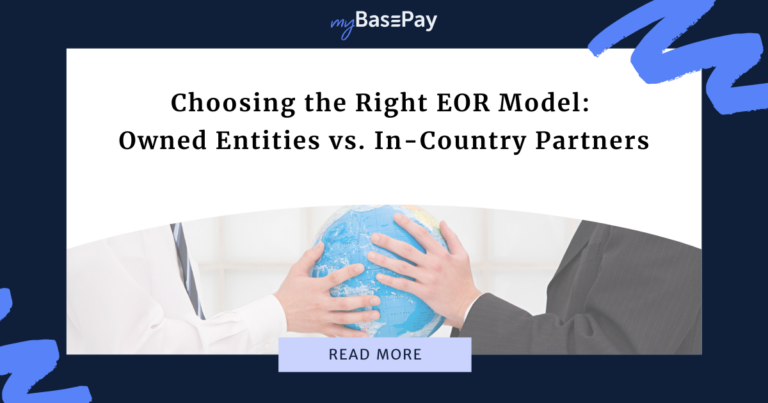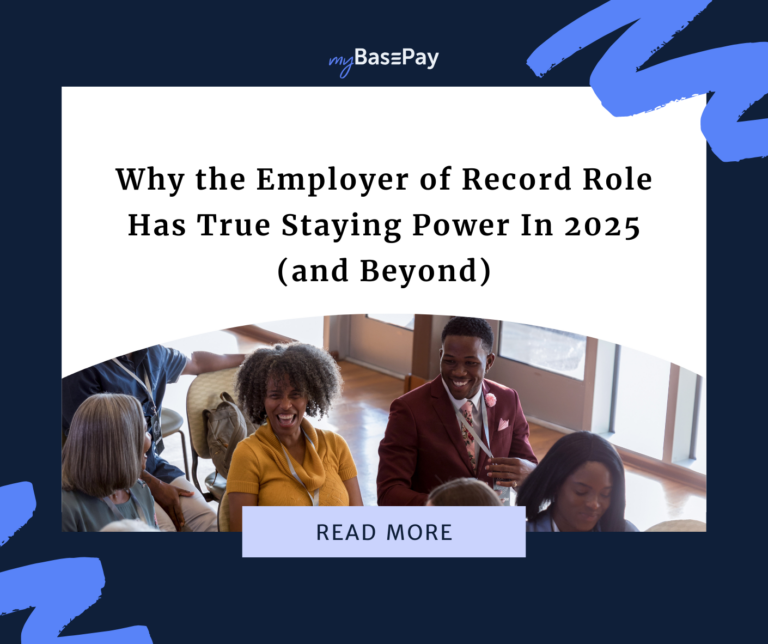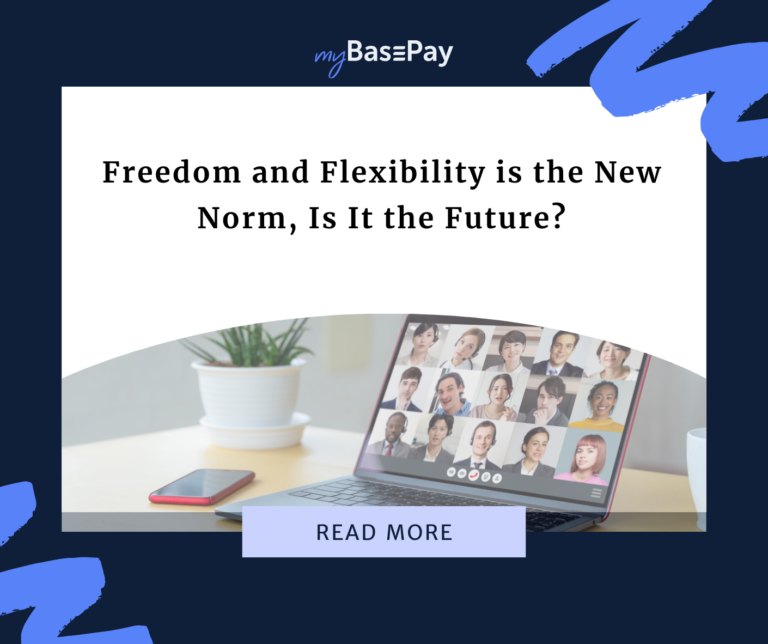Managed Service Providers: How to Choose the Right EOR Partner for a Program
In today’s business environment, managed service providers are increasingly dependent on independent contractors, or freelancers. In the United States alone, it is estimated that there are currently over 70 million freelancers, many of whom obtain all of their income through contracting.
For managed service providers, working with independent contractors can provide a variety of benefits, such as increased flexibility and lower operating costs. However, working with freelancers also introduces new complexities, especially when it comes to managing a hybrid workforce and remaining compliant with government classification standards.
Because of this, working with an employer of record (EOR) is essential for managed service providers that plan to use freelance workers. With the right EOR partner in place, businesses will have a strong framework for success.
What Is an EOR, and What Do They Do?
An employer of record, or EOR, is a third party that manages tasks and liabilities of employment for its clients. This can include performing background checks on new hires, administering benefits, performing tax deposits and payroll processing, providing unemployment insurance and so on.
Essentially, the EOR takes over all responsibilities related to employment and HR. This means they also take on the associated liabilities of employment, such as ensuring that workers are properly classified for tax reporting purposes. In fact, when it comes to tax reporting, the EOR is considered the individual’s employer — not the managed service provider. However, the managed service provider retains responsibility for daily one-on-one interactions with the employee.
An EOR can help organizations big and small by essentially allowing them to outsource payroll and HR concerns. For a small company with limited resources, this can be especially helpful when their current staff doesn’t have the time or skill set necessary to manage staffing on their own. For larger managed service providers, it helps prevent ballooning costs that could result from needing to fill many positions for a wide range of programs and projects.
By delegating HR operations to an EOR, managed service providers can enjoy significant cost savings. EORs tend to be much less expensive than hiring a full-scale HR department and investing in ongoing compliance training. It is also much cheaper than running afoul of IRS compliance guidelines!
EORs can also speed up onboarding through direct hire programs, managing the entire hiring process so a managed service provider can be more flexible and agile when it needs to fill positions. However, not all EORs are created equal.
What to Look for In an EOR
With more EORs available to managed service providers than ever before, it can be hard to identify which potential partner would be best for your needs. By focusing on a few key factors, managed service providers can move forward with confidence.
- Large Reach: EORs are responsible for business registration in the states and countries in which they operate. The more areas they are registered in, the broader their reach can be in terms of helping their clients hire top talent from a wider geographic area. This can be especially helpful for managed service providers that want to hire for a program that allows for remote work. Of course, an EOR should fully understand and be compliant with employment laws for the areas in which it operates.
- Funding Model: Cash flow is a major concern for many businesses that work with an EOR. An EOR that utilizes an upfront funding model allows you to pay your contingent workers and get paid yourself in the same week. This upfront profit model can help eliminate cash flow concerns and give your business the agility it needs to compete for top talent.
- Dependable Compliance: Compliance is one of the biggest concerns with any EOR. Unwavering support in this area involves more than just making sure a worker is correctly classified as a full-time employee or contractor on an IRS form. It also entails risk mitigation, legal contract support, worker clearance and visa verifications, client contract fulfillment and more. The best EORs help address each of these areas of concern.
- Customized Infrastructure: In today’s technology-driven world, an EOR’s ability to efficiently integrate with your existing systems and software will make it much easier to seamlessly operate as partners. Tech-driven EORs that provide a platform technology experience make it easier to manage your employment needs anytime, anyplace. You can enjoy greater transparency into crucial activities such as employment liability, tax reporting, claim management, benefits administration and more. Their platform will be easy to use for you and your workers.
- Strong Customer Service: You don’t want an EOR partner that redirects you to a guidebook or chatbot — or even uses a third-party partner to communicate with your organization. A quality EOR provides an account manager who serves as a dedicated success partner for your business. EORs should have a sense of urgency and ownership culture that matches your expectations and needs, making them readily available to provide partnership guidance and in-house practical expertise.
- Data Security: 2021 saw 1,862 data compromises that affected over 298 million individuals. When working with an EOR, few things are more important than safeguarding your data, as well as the personal information of the individuals you hire through the EOR. Your EOR should use strong data protection frameworks and network security to protect your business and its workforce — as well as to maintain compliance with global digital security standards.
Get Quality EOR Services From myBasePay
If you’re a managed service provider in need of high-quality EOR services, you can count on myBasePay. myBasePay offers turnkey EOR service that is quickly and easily integrated with your company and its processes. By outsourcing and automating administrative employment-related tasks — including employment liability — you will have one less thing to worry about as you strive to build a productive team.
With myBasePay, you have a partner that fully understands and adheres to continually changing compliance standards so you can focus your efforts on tasks that drive results for your business — including delivering a quality working environment for both full-time employees and independent contractors.
Author: Cesar Jimenez, myBasePay CEO
Cesar A. Jimenez is an entrepreneur, investor, and military veteran with over 25 years of staffing industry expertise successfully leading technology staffing organizations. His expertise in the IT industry allows him to use his experience as a thought leader for talent acquisition, staffing, IT, and recruitment technologies with a passion for contingent workforce solutions. Cesar has held various leadership roles for both a global staffing organization and technology solutions companies. This expertise has enabled him to develop alternative workforce models that provide the agility for organizations to be competitive in today’s marketplace. In his spare time, he enjoys spending time with hisfamily, working out, and coaching high school baseball players.
